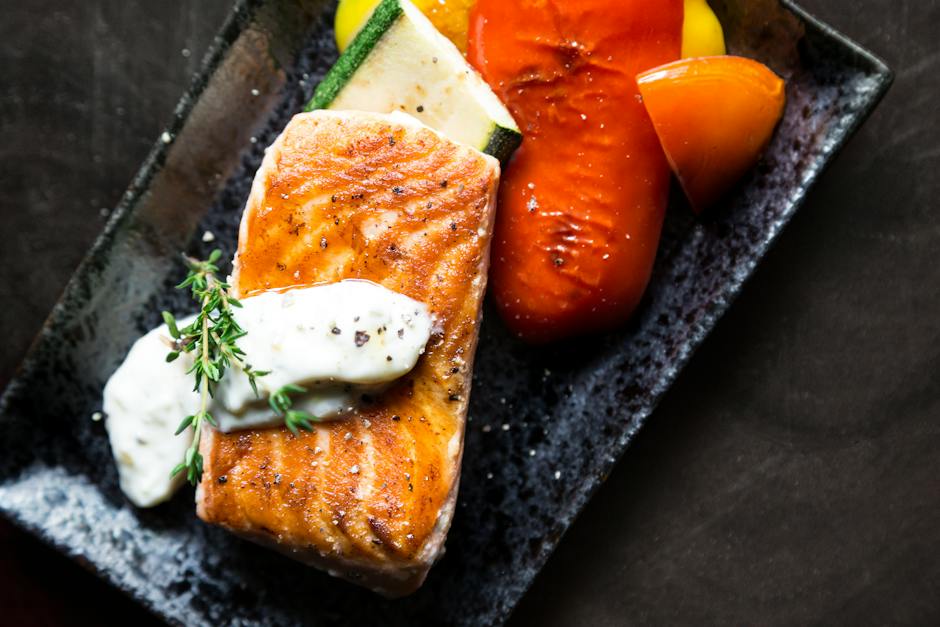Is Salmon Skin Good for You? Unveiling the Nutritional Truths
When it comes to healthy eating, salmon is often a top choice for its rich omega-3 fatty acids and lean protein. But what about the skin that’s often discarded? Is salmon skin good for you, or is it better left on the plate? In this comprehensive guide, we’ll dive into the nutritional benefits of salmon skin, address common concerns, and provide you with all the information you need to make an informed decision about including salmon skin in your diet.
Introduction: The Hidden Nutrient Treasure in Salmon Skin
Salmon is celebrated for its health benefits, but the skin is frequently overlooked. Could this often discarded part of the fish be a hidden treasure trove of nutrients? In this article, we’ll explore the potential health benefits of salmon skin, backed by scientific research and expert opinions. Get ready to discover how this natural wrapper can contribute to your well-being and add a crispy delight to your meals.
The Nutritional Profile of Salmon Skin
Omega-3 Fatty Acids: A Heart-Healthy Component
The Role of Omega-3s in Your Diet
- EPA and DHA: Essential for heart health
- Anti-inflammatory properties: Beneficial for reducing chronic inflammation
Salmon skin is rich in omega-3 fatty acids, particularly EPA and DHA, which are crucial for maintaining heart health and reducing inflammation. Including salmon skin in your diet can contribute to your daily intake of these essential nutrients.
Collagen and Skin Health
How Collagen in Salmon Skin Can Benefit You
- Supports skin elasticity: May help maintain youthful skin
- Joint health: Contributes to the strength of cartilage
The collagen content in salmon skin is another reason to consider not peeling it off. Collagen is known for its role in promoting skin elasticity and joint health, making salmon skin a beneficial addition to a beauty and wellness routine.
Is Salmon Skin Safe to Eat?
Addressing Concerns About Contaminants
Understanding the Risks and How to Mitigate Them
- Choosing wild-caught vs. farmed salmon: Differences in contaminant levels
- Proper cooking methods: How to reduce exposure to potential toxins
While there are concerns about contaminants like mercury and PCBs in fish skin, understanding the source of your salmon and using proper cooking methods can significantly reduce these risks. We’ll discuss how to select the safest salmon and prepare it to minimize any potential health hazards.
How to Prepare and Enjoy Salmon Skin
Cooking Techniques for Crispy and Delicious Skin
Tips for Achieving the Perfect Texture
- Pan-searing: A method for crispy skin
- Grilling: How to prevent sticking and achieve a smoky flavor
Salmon skin can be a delicious treat when prepared correctly. We’ll share some chef-approved techniques for cooking salmon skin to perfection, ensuring it’s crispy, flavorful, and retains its nutritional value.
Incorporating Salmon Skin into Your Diet
Creative and Healthy Recipe Ideas
Dishes That Highlight the Flavor and Texture of Salmon Skin
- Salmon skin chips: A crunchy snack alternative
- Salmon skin sushi rolls: Adding a nutritious twist to a classic dish
Looking for ways to add salmon skin to your meals? We’ll provide you with innovative recipes that not only taste great but also boost your nutrient intake. From snacks to main courses, there’s a place for salmon skin in any meal plan.
Potential Health Benefits of Eating Salmon Skin
A Closer Look at the Advantages for Your Well-being
How Salmon Skin May Contribute to Overall Health
- Weight management: The role of healthy fats in satiety
- Brain health: Omega-3s and cognitive function
Eating salmon skin isn’t just about enjoying a different part of the fish; it’s also about reaping potential health benefits. We’ll explore how the nutrients in salmon skin can contribute to weight management, brain health, and more.
Commonly Asked Questions About Salmon Skin
Addressing Popular Inquiries and Misconceptions
Providing Answers to Enhance Your Understanding
- Can salmon skin help improve my cholesterol levels?
- Is there a difference in nutrient content between wild and farmed salmon skin?
We’ll tackle the most commonly asked questions about salmon skin, dispelling myths and providing evidence-based answers to help you make informed dietary choices.
Conclusion: Embracing the Benefits of Salmon Skin
In conclusion, salmon skin is not only safe to eat but also packed with nutrients that can enhance your health. By choosing the right source of salmon and preparing it with care, you can enjoy the crispy texture and rich flavor of the skin while benefiting from its omega-3 fatty acids, collagen, and other health-promoting components. Whether you’re looking to improve your heart health, maintain youthful skin, or simply add a new twist to your culinary repertoire, salmon skin is a valuable addition to a balanced diet.
Remember to consult with a healthcare provider or a nutritionist if you have any concerns about incorporating salmon skin into your meals, especially if you have specific dietary restrictions or health conditions. With the right knowledge and preparation, salmon skin can be a delicious and nutritious part of your eating habits.


